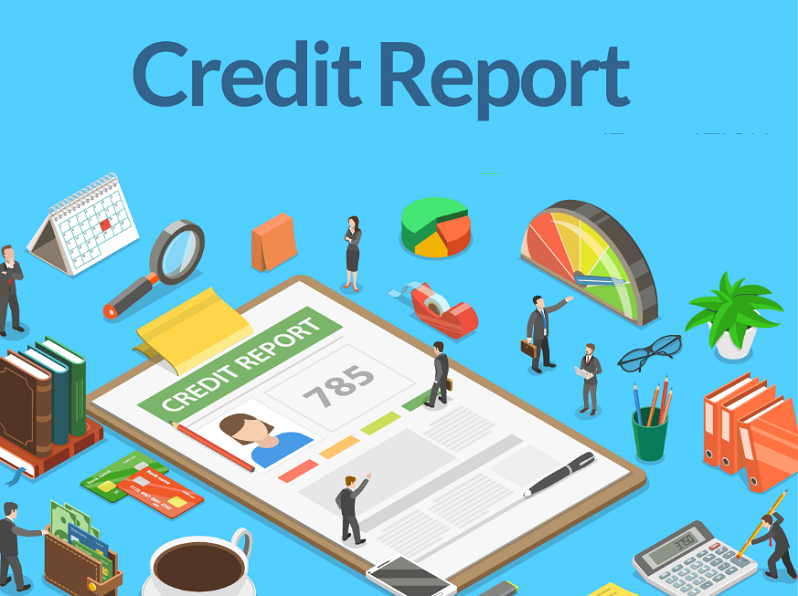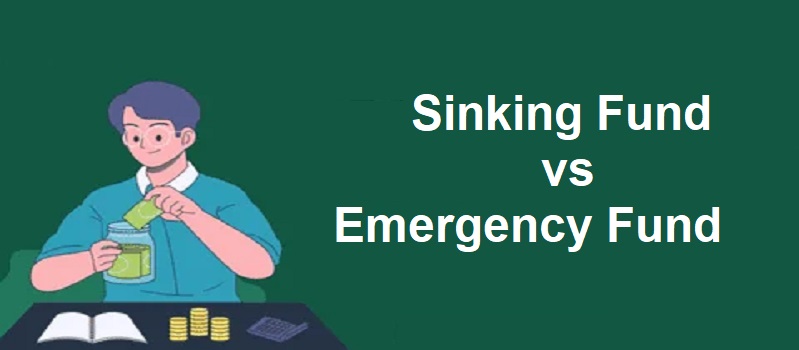A credit report records your transactions, defaults, pending loan payments, credit card payments, CCJs, etc. It is an important booklet. It reveals how you pay your bills and how long you have been managing credit accounts.
Loan providers use your credit report to learn about your borrowing and repayment pattern. It helps them decide whether or not to approve the loan. Credit reports help calculate credit scores and verify identities.
What does a credit report imply?
A credit report is a summary of credit history that includes all types of short and long-term credits, payment history, and credit limits on credit cards. Primary Credit Reference Agencies (CRA) that provide complete credit report information are- Experian, TransUnion, and Equifax.
Creditors provide the information to these agencies. Some report to all while others to only 1-2 agencies. Every agency has different criteria to view financial management and rate it. You may get different credit scores when you check your credit score for free on any of these platforms.
The credit score helps the lenders decide the interest and other terms. A high credit scores indicate positive financial management while a low credit score implies- mismanaged finances. A higher credit score signifies the borrower’s capability to qualify for low-interest rates.
What is the use of a credit report?
A credit report includes closed and open loan accounts, type of credit, and payment history for each account.
Lenders analyse the credit file to determine whether you meet the existing credit account terms or not. They use the data to analyse whether you can pay the debts timely or not.
The analysis becomes important when you need money for life goals like- a mortgage, car purchase, home renovation, or emergencies. Other entities like- insurance companies and landlords check the credit report to analyse- insurance coverage possibility, capability to pay the rent, and utility bills.
Credit reports sometimes impact job applications too.
What information does a credit report include?
A credit report reveals information in a readable form that one can access online on any of the above-mentioned platforms. The parameters that CRAs use are the same. The way of presentation may differ. Here is what your credit report includes
- Personal information- name, date of birth, contact number, address, employers
- Accounts- Existing revolving credit, credit cards in your name, auto loans, personal loans, car loans, payday loans, paid debts, unpaid debts
- Public records- Court judgments and inquiries in the form of CCJs, Bankruptcies, IVA
- Credit Inquires- These are inquiries that lenders conduct to know the potential to afford the payments. The inquiries split into a soft credit check and a hard one. Hard credit inquiries get recorded and impact credit scores for a brief time. While a soft one does not get recorded and no other lender can see it.
- Whether you have committed fraud or have been a subject of stealing the identity
- Your connection with other accounts like – a joint account with someone on a mortgage or bank account
- Engagement with Buy Now Pay Later services
- Your presence on electoral roll
What credit report parameters help calculate credit scores?
The information in your credit report is used to calculate credit scores. The credit scores are not a part of the credit report. To know it, you can use a free credit score checker. Some important credit report parameters help define the credit score of a borrower.
- Payment history: It reflects whether you pay your bills and loan repayments timely.
- Length of credit history: It is calculated by using old and new credits in the report.
- Credit Mix– It includes different types of short-term and long-term loans in the report. It also includes credit card debt.
- New Credit– It reflects the number of new debts in a profile. Too many new credits can be a red flag.
- Amounts Owed- It includes the total number of debts in ratio to the total monthly income. Under this, lenders identify factors like the Credit Utilisation ratio before lending.
You should balance your loan repayments and other expenses as mismanagement affects your credit score drastically. Here is how:
- Non-repayments or pending bills slowly degrade your credit score. Interest rates on loans rise continuously. This impact the score
- No credit history or limited credit history indicates bad credit
- Having only high-interest debts like credit card debts leads to rejection
- If your income is lower than your expenses, it indicates a high Credit Utilisation ratio. It also impacts your credit and leads to a bad credit score.
How long does the financial information stay on a credit report?
Information remains on the credit report for up to 7 years. It may exceed 11-13 years in case of issues like bankruptcy.
Can you check your credit score for free?
Yes, you can check your credit score for free by using any of the Credit agencies. You can check your credit report before applying for any credit or after rejecting a loan. Experian is the popular credit agency to check your credit without paying anything.
Usually, the agencies provide annual credit reports for you to analyse. But you can get an updated credit report and score every 30 days to manage credits easily.
Checking your credit report frequently helps you ensure balanced finances and fair credit scores.
How to ensure a good credit score?
A bad credit score obstructs you from qualifying for better interest rates, costs, and terms. Some lenders may reject the applications owing to insufficient credit. Before applying for the next loan, work on your credit history. .
Here is how you can improve your credit score the right way:
a) Budget and pay loan payments timely
Multiple debts affect your credit score. Budget if you have over 4 debt repayments to pay monthly. Identify how much you can pay towards each debt given the income and other critical expenses. Once your budget, identify whether you have any spare amount or not. The borrowings must not affect the monthly budget. Avoid multiple debts at once.
b) Limit credit card usage
Overusing credit cards for big and small purchases may impact your borrowing potential. It is advisable to keep your credit utilisation ratio to 30%. Do not close any credit card, regardless of how frequently you use it.
c) Avoid making multiple loan applications
Too many loan applications in the shortest time may impact your credit score. Always use an eligibility checker to determine the possibility to qualify for a loan. It does not impact the credit score. It also helps in analysing whether you can budget for the monthly payment easily or not.
d) Hold the best mix of credit
It is a good practice to ensure balanced debts. Having a variety of debts in your credit profile helps your credit. You can have the best mix of credit by arranging your debts like- credit cards, mortgages, student debts, payday loans, etc.
e) Report delinquencies to agencies
Check your credit score and report every month. It helps you analyse any delinquencies like- paid debts, and report them to the agencies. It improves the credit score.
Bottom line
Your credit report contains critical information like – unpaid debts, credit card dues, utility payments, etc. Having a clear idea about your credit report helps report errors to agencies. It will keep your credit score in good form. Keeping your credit report in sound shape would help qualify for better rates. The above-listed measures can help you with it.

Mark Williams works as one of the Loan Advisors at a direct lender firm, Onestoploansolution. He has been working with the lender for about 15 years. He has been known to facilitate his employer in remarkable ways from writing to consulting and whatnot. He is a professional who wants to explore more of the UK financial market, the loan products and how customer requirement changes with time.






